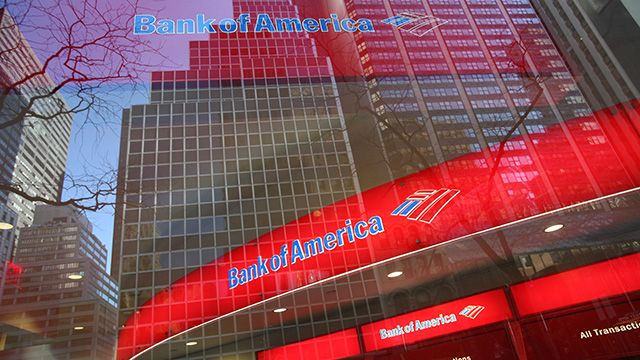
This post first appeared at Talk Poverty.
Last week, Bank of America reached a record-setting $16.65 billion settlement with the Department of Justice for selling toxic mortgage securities during the housing boom. The agreement includes $30 million for states to distribute to their legal aid programs. This is encouraging news for the 1.75 million homeowners who are still in default on their mortgages, as well as the 9.5 million borrowers who are underwater and at risk of foreclosure. But it’s not enough.
One of the best ways to prevent unnecessary foreclosures is to provide struggling families with a legal aid lawyer. While the state guarantees legal representation for any criminal proceeding, there is no such guarantee in civil cases. Therefore, access to fair representation depends largely on the availability of free legal aid lawyers who have a long track record of helping people with no other options — such as battered spouses, people with disabilities, parents seeking child support, homeless veterans and others without means.
Legal aid lawyers have the necessary training to help homeowners navigate the byzantine mortgage servicing system. They can identify mortgages that were illegal or predatory, and also help families make their mortgage payments by securing resources like unpaid wages, child support, public benefits, or unemployment insurance. Legal aid programs have saved many thousands of homes since the start of the financial crisis, but recently have struggled to secure funding for their vital work. The Bank of America settlement will hopefully be helpful in this regard but we need to do much more.
Early in the foreclosure crisis, the Center for Responsible Lending, a national advocacy group, received a $15 million grant for an innovative grant-making enterprise called the Institute for Foreclosure Legal Assistance (IFLA). Over the course of three years, IFLA more than doubled the number of attorneys devoted to foreclosure prevention work and created a national infrastructure of training, informational materials and networking that served as a powerful force multiplier. The program ultimately reached tens of thousands of borrowers either through individual assistance, broadly applicable policy changes or access to critical information and materials.
Yet funding for IFLA was only available for three years, and at the end of that period, IFLA closed its doors. Since then, resources for foreclosure prevention work have dwindled even as the significant risk of foreclosure for millions of homeowners continues. Yet the IFLA infrastructure still exists, and an infusion of funds could immediately be put toward productive use without the need to build a new program.
While the Bank of America settlements directs monies to states, there is another source of federal monies that could be used to restart IFLA’s critical work: the remaining funds from the Independent Foreclosure Review (IFR).
The IFR was initiated when financial regulators found evidence that mortgage servicers had engaged in rampant misconduct when troubled borrowers came to them for help with their mortgages. The regulators first attempted to review every case individually, but that effort foundered. Instead, they decided to compensate homeowners who were most likely to have been harmed by the servicers, setting aside $3.6 billion for this effort. Borrowers ultimately claimed roughly 86 percent of the monies set aside but approximately $500 million remains unclaimed.
Regulators are considering giving those remaining funds to states for their “unclaimed funds” accounts in case homeowners file late claims. However, under this scenario, it is unlikely that much of that money will end up in the hands of homeowners seeking compensation. In fact, according to a recent letter to federal regulators from the National Housing Resource Center — an advocate for the nonprofit housing counseling community — only 2.8 percent of unclaimed funds held by New York State, and about 6 percent held by the state of Texas, reach the rightful owners every year. These funds are much more likely to end up in a state’s general funds where they could be used for just about anything, as has occurred with proceeds from other mortgage settlements.
Instead, regulators should send the states only the amount of remaining IFR funds that are likely to be claimed by homeowners. The rest of the money should be used for other foreclosure prevention efforts — including re-funding IFLA — to reinvigorate critical civil legal aid efforts, prevent unnecessary foreclosures and help stabilize communities that are still being left behind in the economic recovery.
With the Bank of America agreement, hundreds of billions of dollars have now been collected in settlements with lenders and servicers, and families and neighborhoods should be far better off than they are now. Adequately funding national, state and local civil legal aid programs is one of the most effective ways to ensure that these settlements provide meaningful assistance to the people and communities that have been hit the hardest by the bad behavior of financial institutions.
The views expressed in this post are the authors’ alone, and presented here to offer a variety of perspectives to our readers.



